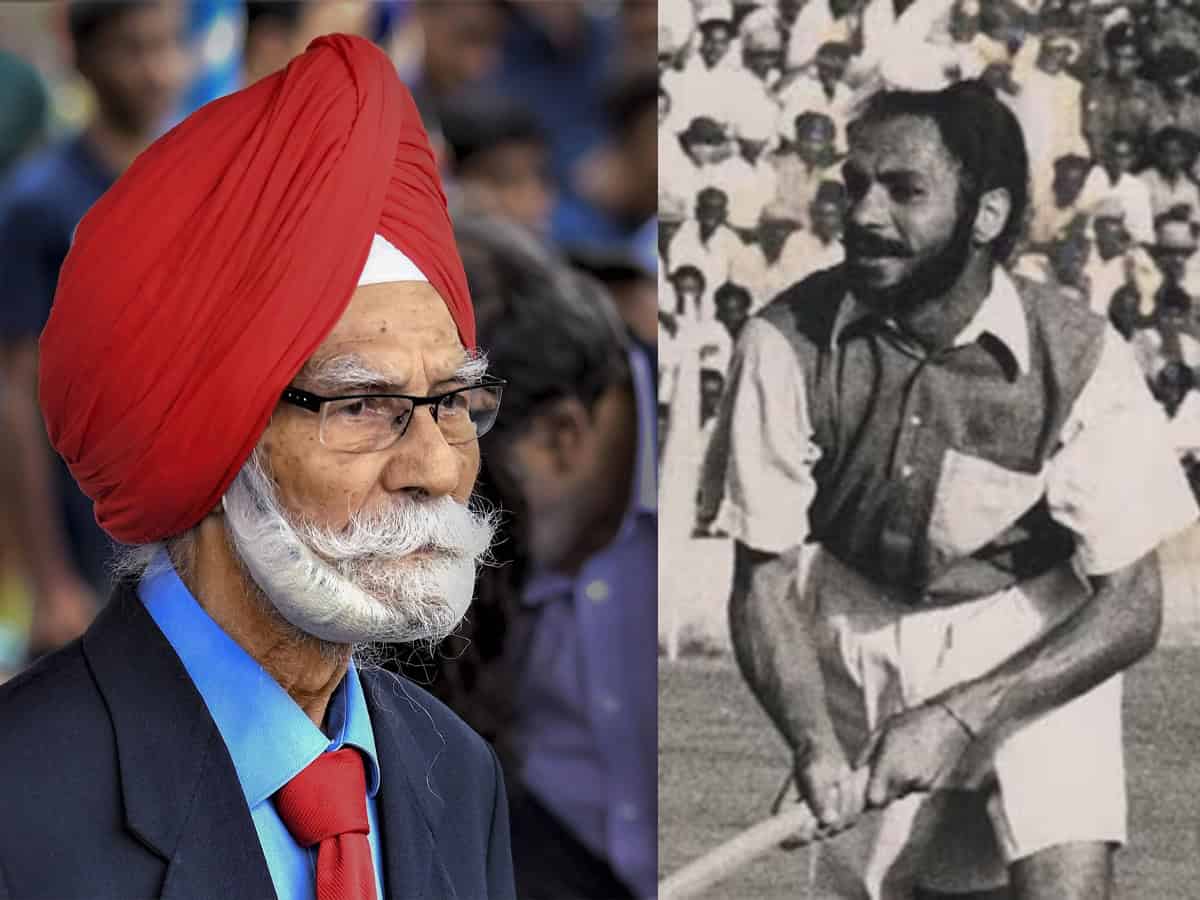
Few Indians know that the longest standing record in the Olympic Games exists in the name of an Indian sportsman. His name is Balbir Singh Dosanjh. He was one of India’s greatest hockey players and is still regarded as the best centre-forward in world hockey history.
In the hockey final of the 1952 Olympic Games in Helsinki, Balbir Singh scored five goals in the final match against the Netherlands. India defeated the Netherlands by a 6-1 margin mainly due to the superb game of Balbir Singh. Sports records are usually broken every two or three years, but nobody has yet broken Balbir’s record of five goals in the final even though 72 years have passed since that day.
In a glittering career Balbir bagged three Olympic gold medals. The first one came when India won the hockey competition at the London Olympics in 1948. The second one was in the Helsinki Olympics where he created the long standing record. The third one came at the Melbourne Olympics in 1956.
Balbir Singh was called Balbir Singh senior to distinguish him from other players named Balbir Singh who played hockey in the Indian team at the same time. His full name was Balbir Singh Dosanjh. He was born on December 31st, 1923 in a village in Jalandhar district of Punjab.
Inspired by a newsreel
His father Dalip Singh Dosanjh was an ardent freedom fighter. He was jailed many times. When he was young, little Balbir was very fond of watching films at a nearby theatre and on one such occasion he saw a newsreel of Dhyan Chand and India’s gold medal victory in the 1936 Olympic Games.
That newsreel inspired him to take up hockey and he began to rise up the ranks very quickly. As a college student, he became captain of Khalsa College and then led Punjab state to three national championship victories in undivided India.
After independence, Balbir was selected in the Indian team and became a key member of the side even before the 1952 Olympics came up. Apart from Balbir the team in 1952 had many famous names such as K.D. Singh Babu, Leslie Claudius, Keshav Datt, Randhir Singh Gentle, and Udham Singh.
India’s progress to the final
In the quarter final, India beat Austria 4-0 and then defeated Great Britain 3-1 to enter the final. From the other half it was the Netherlands which entered the final. The Europeans were aware of India’s reputation and knew that this star studded team from India would be hard to beat. So they formulated their strategies well in advance.
Their plan was to keep the Indian attackers at bay with a tightly packed defensive formation while relying heavily on the skills of their ace forward Jan Hendrik Kruize to score their goals.
Dutch defence shattered
But nobody was prepared for the tall Sikh’s amazing speed and fantastic skill. Time and again he cut through the heavily manned defence of the Netherlands like a knife cutting through butter. The Dutch defence was ripped apart by Balbir Singh.
Between the 14th and 65th minute of the match, Balbir banged in five goals. In between K.D. Singh Babu chipped in with one goal and India ended up with six goals to its name. The solitary goal for the Dutch team was scored by Rius Theo Esser, the 34-year-old veteran of the team.
IOC should honour great feats
India’s stupendous victory and the magical skills of Balbir Singh left the hockey world stunned that day. It would be wonderful if the International Olympic Committee held a programme during every Olympic Games to recognise, honour and recall the greatest feats ever witnessed at the Olympic Games. In that case Balbir’s achievement would also be remembered and appreciated and it would be a matter of great pride for all Indians.
